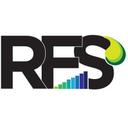Japan-based Cosmo Oil Co. Ltd. on March 6 announced that construction is complete on a SAF located within the company’s existing Sakai refinery. The facility, operated by Saffaire Sky Energy LLC, is expected to begin supplying SAF in April.
Clean Fuels Alliance America is urging the U.S. EPA to establish robust, timely RFS volumes for 2026 and beyond and suggesting the agency set the 2026 RFS renewable volume obligation (RVO) for biomass-based diesel at 5.25 billion gallons.
Ethanol Producer Magazine announced this week the preliminary agenda for the 2025 International Fuel Ethanol Workshop & Expo (FEW) taking place June 9-11, 2025 at the CHI Health Center in Omaha, Nebraska.
As the Philippines moves toward unlocking the potential of SAF, the USGC collaborated with the Philippines Department of Transportation and Boeing to conduct the first Philippines SAF Summit in Manila.
Louis Dreyfus and Global Clean Energy renew agreement to expand camelina cultivation in South America
Louis Dreyfus Company and Global Clean Energy Holdings Inc. announced on March 11 the renewal for an additional 10 years of their collaboration to promote the cultivation of Camelina sativa (camelina) in South America as an intermediate crop.
With the U.S.-established SAF Grand Challenge’s 2030 deadline quickly approaching, Comstock Fuels is ready to answer the call.
Aemetis Inc. released fourth quarter and full year 2024 financial results on March 13, reporting increased revenues for its U.S. ethanol and biogas operations as well as its biodiesel operations in India.
JetBlue along with its fuel partners marked the first-ever regular supply of sustainable aviation fuel (SAF) for commercial air travel in the region at New York’s John F. Kennedy International Airport (JFK).
The U.S. Energy Information Administration maintained its outlook for 2025 and 2026 renewable diesel and sustainable aviation fuel (SAF) production in its latest Short-Term Energy Outlook, released March 11.
The U.S. EPA on March 12 announced it has kicked off a formal reconsideration of 2009 Endangerment Finding, which forms the legal basis for GHG regulations, and is considering the elimination of the agency’s Greenhouse Gas Reporting Program.
The USDA reduced its forecast for 2024-’25 soybean oil use in biofuel production in its latest World Agricultural Supply and Demand Estimates report, released March 11. The outlook for soybean oil price was unchanged.
SK Energy on March 10 announced that it had signed a contract with Cathay to supply no less than 20,000 tons of sustainable aviation fuel (SAF) until 2027. SK Energy has been supplying ISCC certified SAF to Cathey since November 2024.
The Clean Fuels Alliance Foundation has awarded Courtney Videchak the 2025 Beth Calabotta Sustainable Education Grant. Videchak is a Mechanical Engineering PhD candidate at the University of Michigan with experience working on diesel engines.
There are different market options for renewable naphtha, both as a SAF byproduct and coproduct.
Despite the challenges it currently faces, the bio-based diesel industry is building on its successes and is ready to battle.
The U.S. EPA on March 7 announced it will extend the compliance year 2024 Renewable Fuel Standard reporting deadline and signaled its intent to revise the 2024 RFS renewable volume obligation (RVO) for cellulosic biofuel.
Whether 45Z can be the motivating factor to help incentivize that growth for the SAF industry still remains to be seen and is clouded by uncertainty—just like its rollout.
Honeywell on Feb. 26 announced that Taiyo Oil Co. Ltd. has chosen the Honeywell UOP Ethanol to Jet (ETJ) technology to produce sustainable aviation fuel (SAF) at its Okinawa Operations in Japan. The facility is expected to begin operations in 2029.
A group of 70-plus stakeholders in the e-SAF industry are encouraging EU officials to implement five policy changes to encourage e-SAF development. The suggested changes aim to overcome investor barriers and accelerate progress.
Natural Resources Canada’s Energy Innovation Program has announced it is now accepting applications for funding to support clean fuels production and clean fuels transportation and storage projects.
Haffner Energy, a solid biomass-to-clean fuels solutions provider, and ATOBA Energy, a sustainable aviation fuel (SAF) aggregator, are joining forces to accelerate the development of SAF projects and facilitate their financing.
The Minnesota Senate Taxes Committee on March 3 voted to approved legislation that aims to extend and expand the state’s existing tax credit for sustainable aviation fuel (SAF), which was established in 2023.
The U.K. government on March 3 opened a public consultation on a SAF revenue certainty scheme, which aims to reduce financial risks for emerging SAF producers. The scheme complements the U.K.’s SAF mandate, which came into force Jan. 1, 2025.
The U.S. strongly objects to a recommendation on “sustainable” aviation fuels focused on multi-cropping made during the 13th triennial meeting of the ICAO Committee on Aviation Environmental Protection.
Biomass Magazine has announced the six companies selected to pitch to a group of angel investors and venture capital firms at the International Biomass Conference & Expo, taking place March 18-20, 2025, in Atlanta, Georgia.
Calumet Inc. released Q4 financial results on Feb. 28. During an earnings call, company officials discussed operations at its Montana Renewables facility, changing market dynamics for biobased-based diesel, and the company’s MaxSAF initiative.
U.S. operable biofuels capacity held steady in December, with no changes for ethanol, biodiesel or renewable diesel, according to data released by the U.S. EIA on Feb. 28. Feedstock consumption was up slightly from the previous month.
Advertisement





























